Easy Ways to Support Your Prostate with Supplements
Discover the top prostate supplements that may support your prostate health. Learn about saw palmetto, zinc, selenium and more with our comprehensive guide for men over 40.
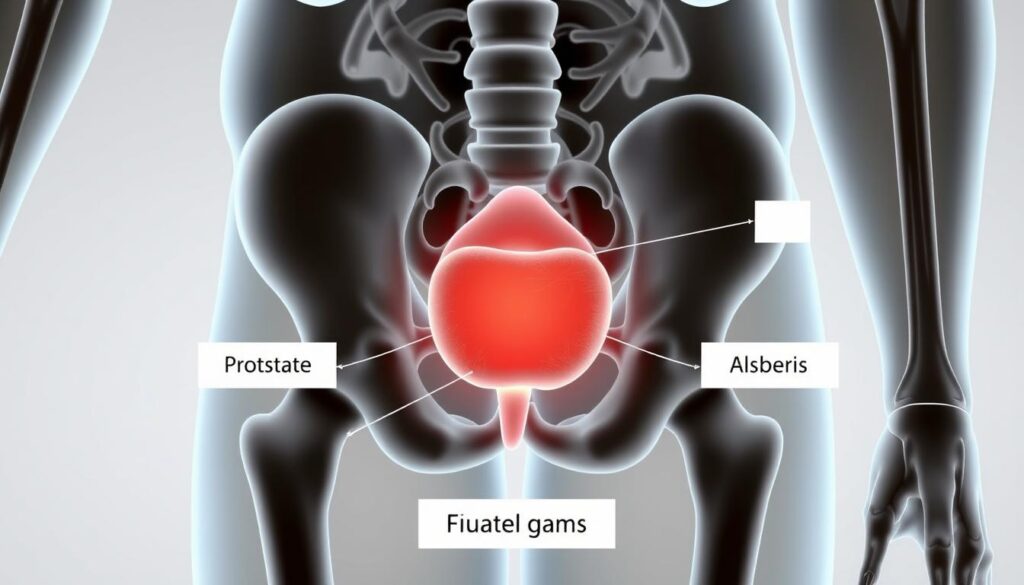
Understanding Prostate Health and Supplements
The prostate gland naturally enlarges as men age, potentially leading to urinary symptoms and discomfort. While this process is normal, various nutrients and plant compounds have shown promise in supporting prostate function and comfort. Before exploring specific options, it’s important to understand that supplements should complement—not replace—regular medical care.
According to research, men with a family history of prostate issues are more likely to take prostate supplements. However, it’s essential to approach supplementation with realistic expectations and medical guidance.
Dietary supplements for prostate health typically contain ingredients believed to reduce inflammation, support normal prostate size, or promote healthy urinary function. While research on these supplements shows mixed results, some men report noticeable improvements in their symptoms.
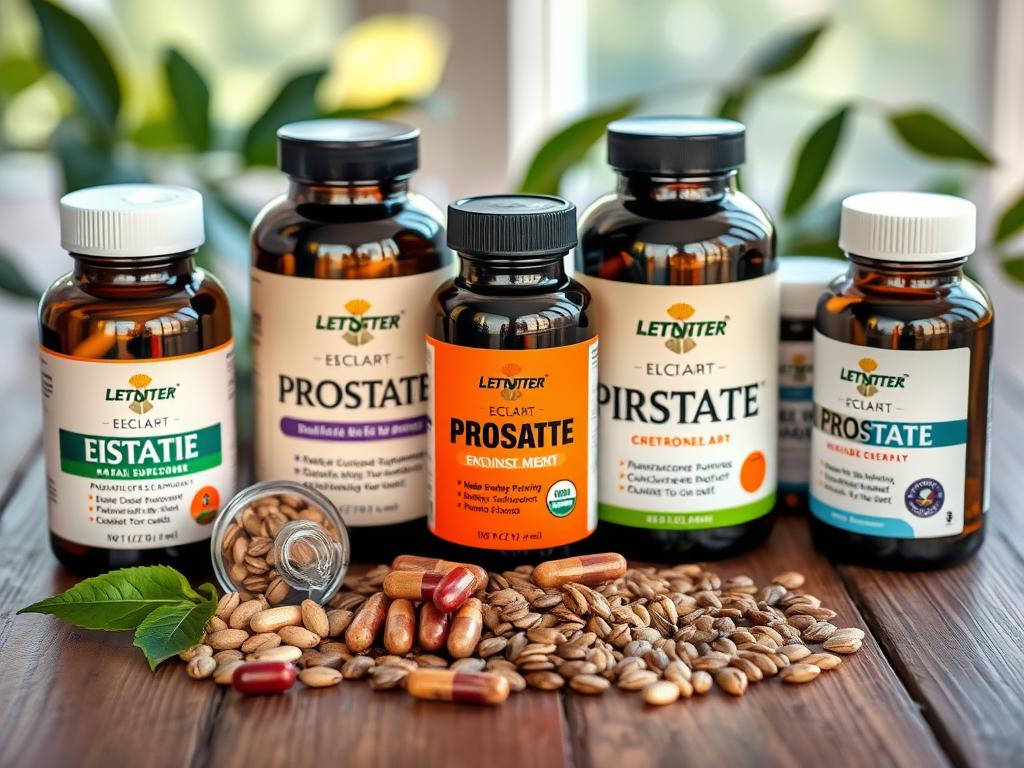
Top 5 Prostate-Supporting Supplements
Research has explored several supplements for their potential benefits to prostate health. While results vary, these five options have shown the most promising evidence for supporting prostate function and comfort.
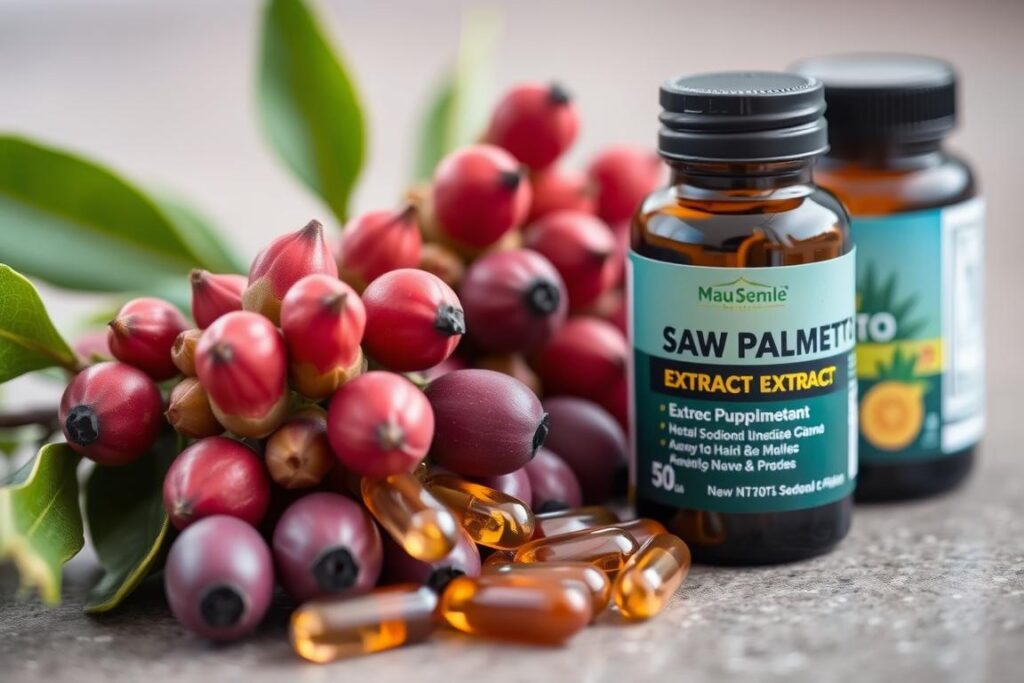
1. Saw Palmetto
Perhaps the most widely used prostate supplement, saw palmetto is derived from the fruit of a shrubby palm native to the southeastern United States. This natural remedy has been studied extensively for its potential to ease symptoms of benign prostatic hyperplasia (BPH).
Benefits:
- May help reduce urinary frequency and improve flow
- Could help maintain normal prostate size
- Potentially reduces nighttime urination
Recommended Dosage:
Most studies use 320mg daily of standardized extract containing 85-95% fatty acids and sterols. Results typically take 4-6 weeks to become noticeable.
Scientific Backing:
Research on saw palmetto shows mixed results. Some studies suggest modest benefits for urinary symptoms, while others, including large NIH-funded trials, found it to be no more effective than a placebo. However, many men report subjective improvements in their symptoms.

2. Zinc
The prostate contains more zinc than any other organ in the male body. This essential mineral plays a vital role in prostate function and reproductive health.
Benefits:
- Supports normal prostate cell function
- May help maintain healthy prostate tissue
- Supports immune function and overall health
Recommended Dosage:
The recommended daily allowance for adult men is 11mg. For prostate support, some practitioners suggest 15-30mg daily. However, high doses (over 100mg daily) may actually increase prostate cancer risk.
Scientific Backing:
Research shows that prostate cells accumulate zinc more than any other cells in the body. Some studies suggest zinc deficiency may contribute to prostate enlargement, but observational studies on zinc supplements show inconsistent results for prostate health.
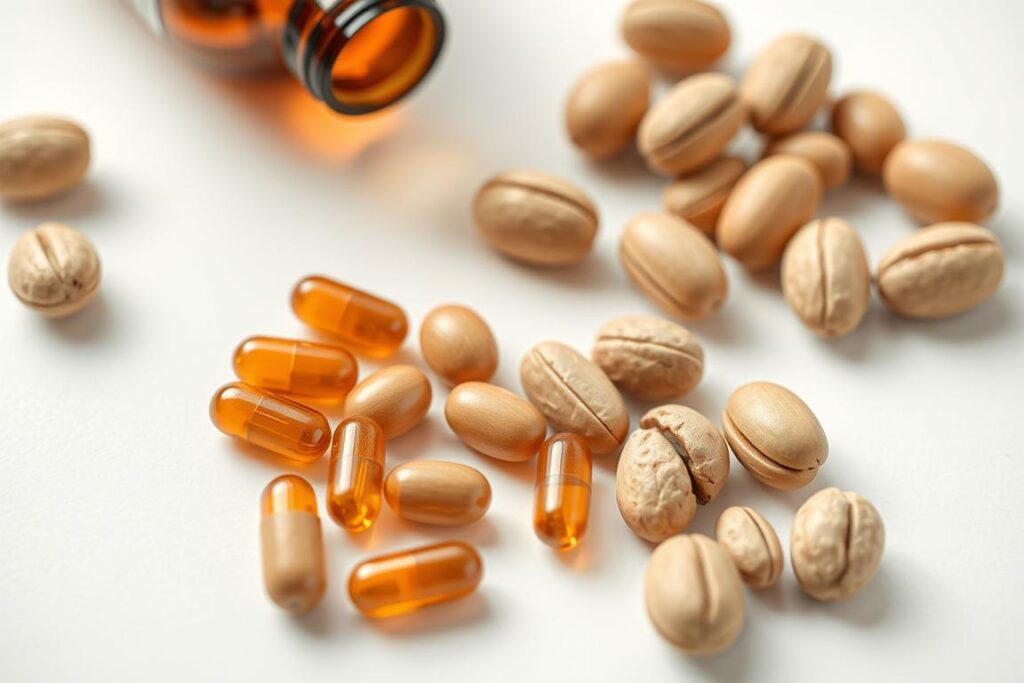
3. Selenium
Selenium is a trace mineral with antioxidant properties that has been studied for its potential role in prostate health and cancer prevention.
Benefits:
- Acts as an antioxidant to protect cells from damage
- May support overall prostate health
- Some studies suggest it might slow prostate cancer progression
Recommended Dosage:
The recommended daily allowance is 55mcg for adult men. Supplements typically provide 50-200mcg per day.
Scientific Backing:
Research on selenium and prostate health shows conflicting results. Some studies suggest potential benefits for prostate cancer prevention, while others show no significant effect. The optimal dosage and which men might benefit most remains undetermined.
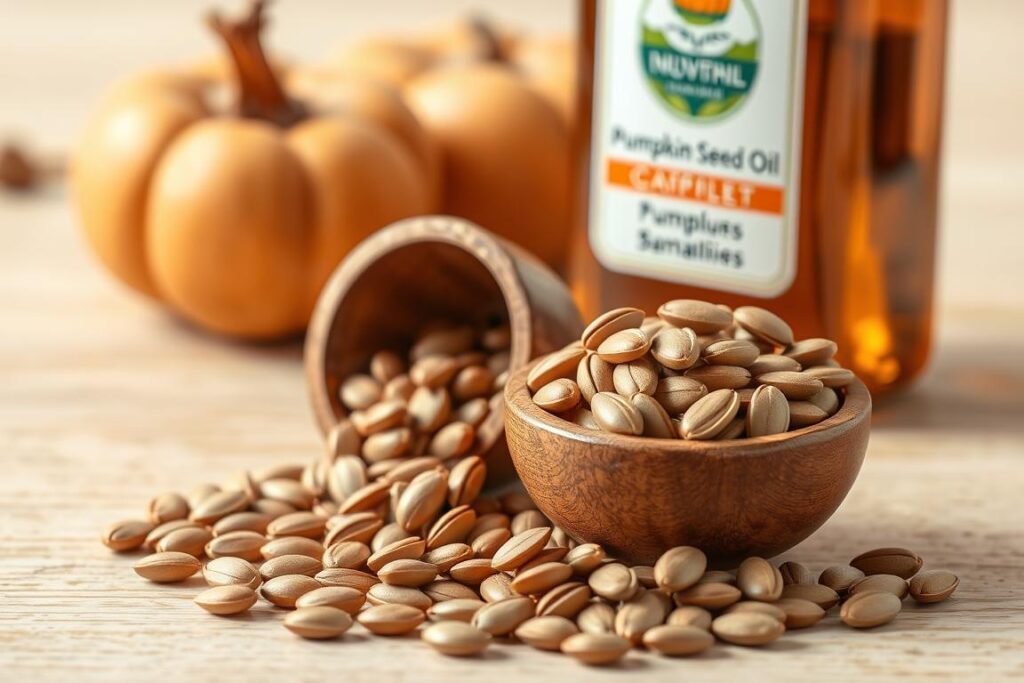
4. Pumpkin Seed Oil
Pumpkin seed oil contains phytosterols, antioxidants, and fatty acids that may benefit prostate and urinary health.
Benefits:
- May help reduce symptoms of an enlarged prostate
- Could improve urinary flow and reduce frequency
- Provides anti-inflammatory benefits
Recommended Dosage:
Most studies use 320-480mg daily of pumpkin seed oil extract. Whole pumpkin seeds can also be consumed (about 1-2 ounces daily).
Scientific Backing:
Several small studies suggest pumpkin seed oil may help reduce symptoms of BPH and improve quality of life. The oil contains compounds that may help inhibit the conversion of testosterone to dihydrotestosterone (DHT), which plays a role in prostate enlargement.

5. Lycopene
Lycopene is a powerful antioxidant found primarily in tomatoes and other red fruits. This carotenoid gives tomatoes their red color and has been studied for its potential prostate benefits.
Benefits:
- Provides antioxidant protection for prostate cells
- May help maintain healthy prostate tissue
- Some studies suggest potential for reducing prostate cancer risk
Recommended Dosage:
Most supplements provide 10-30mg of lycopene daily. Consuming 1-2 servings of cooked tomato products daily can also provide beneficial amounts.
Scientific Backing:
Several observational studies have linked higher lycopene intake with lower risk of prostate problems. Cooked tomato products (like tomato sauce) provide more bioavailable lycopene than raw tomatoes.
Consult With A Healthcare Provider
Before starting any supplement regimen for prostate health, it’s important to speak with your healthcare provider, especially if you have existing prostate issues or are taking medications.
Lifestyle Synergy: Maximizing Supplement Benefits
Prostate supplements work best when combined with prostate-friendly lifestyle choices. Integrating these supplements with the right diet and exercise habits can potentially enhance their effectiveness.
Dietary Sources of Prostate Nutrients
Many prostate supplements contain compounds that can also be found in everyday foods. Including these foods in your diet can complement your supplement regimen:
- Tomatoes and tomato products – Rich in lycopene, especially when cooked
- Pumpkin seeds – Natural source of zinc and beneficial plant compounds
- Brazil nuts – High in selenium (just 1-2 nuts provides the daily requirement)
- Green tea – Contains antioxidants that may support prostate health
- Fatty fish – Provides anti-inflammatory omega-3 fatty acids

Exercise and Prostate Health
Regular physical activity can enhance the benefits of prostate supplements by:
- Improving blood circulation to the prostate gland
- Helping maintain a healthy weight (obesity is linked to prostate issues)
- Reducing inflammation throughout the body
- Supporting overall hormonal balance
Aim for at least 30 minutes of moderate exercise most days of the week. Walking, swimming, and strength training are all excellent options.

Did You Know?
Research suggests that men who exercise regularly may have up to a 30% lower risk of developing prostate problems compared to sedentary men. Combining regular exercise with targeted supplements may provide synergistic benefits for prostate health.
Safety Tips: Using Prostate Supplements Wisely
While prostate supplements can be beneficial, they should be used thoughtfully and safely. Consider these important guidelines before starting any supplement regimen.
Potential Risks and Interactions
Be aware of these potential concerns when taking prostate supplements:
Important Safety Considerations:
- Some supplements may interact with medications, including blood thinners and certain heart medications
- High doses of certain nutrients (like zinc or selenium) can be harmful
- Some supplements may affect PSA (prostate-specific antigen) test results
- Quality and potency can vary significantly between brands
Always inform your healthcare provider about all supplements you’re taking, especially before surgery or if you’re on prescription medications.

Choosing Quality Supplements
The FDA regulates supplements as food, not medicine, meaning quality control varies widely. Look for these indicators of quality:
- Third-party testing (look for USP, NSF, or ConsumerLab verification)
- Good Manufacturing Practices (GMP) certification
- Clear labeling of active ingredients and their amounts
- Reputable manufacturer with transparent practices
- Absence of unnecessary fillers or additives
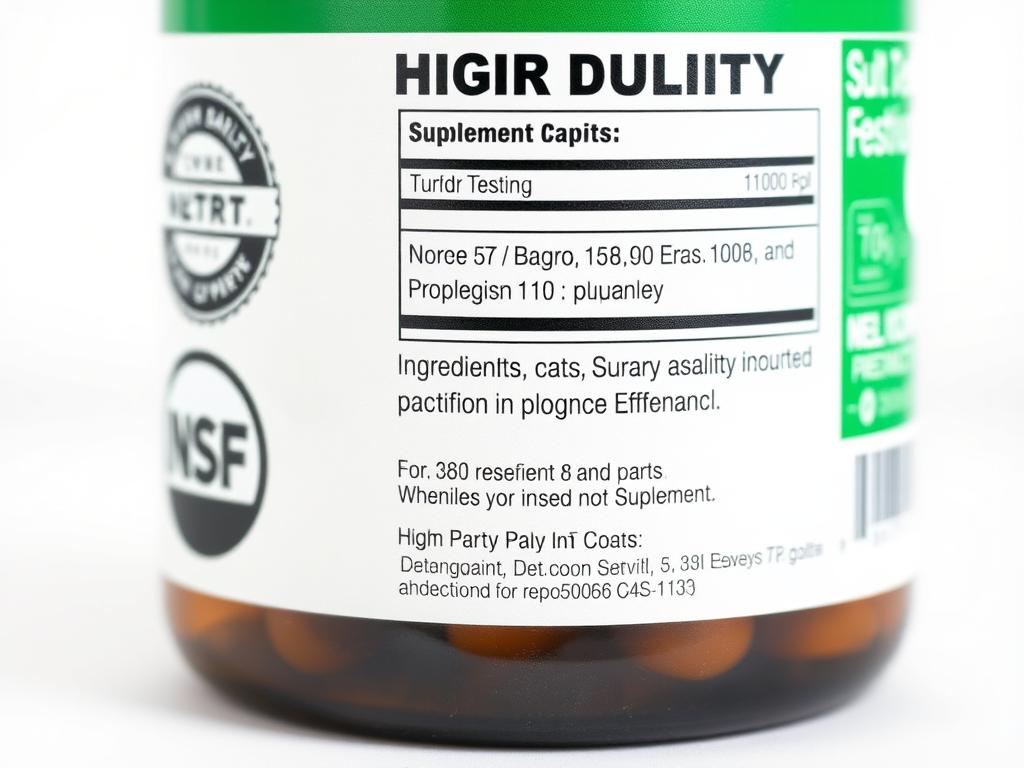
When should I talk to my doctor about prostate supplements?
Always consult your healthcare provider before starting supplements if you:
- Have existing prostate issues or symptoms
- Take prescription medications
- Have upcoming surgery or medical procedures
- Have chronic health conditions
- Are over 50 and haven’t had a prostate examination recently
Schedule Your Prostate Health Check
Regular prostate screenings are essential for men over 40. Talk to your doctor about which supplements might be right for your specific health needs.
Monitoring Results: What to Expect
When taking prostate supplements, it’s important to have realistic expectations and know how to track potential benefits.
Timeline for Potential Benefits
Most prostate supplements require consistent use before effects may be noticed:
- 1-2 weeks: Typically too soon to notice significant changes
- 4-6 weeks: Some men begin to notice mild improvements in urinary symptoms
- 2-3 months: More noticeable effects may appear with consistent use
- 6+ months: Long-term benefits may become more apparent
Keep in mind that results vary significantly between individuals, and some men may not experience noticeable benefits.

Signs of Improvement
These changes might indicate your prostate supplements are having a positive effect:
- Reduced urinary frequency, especially at night
- Improved urine flow and less straining
- More complete bladder emptying
- Decreased urgency or sudden need to urinate
- General improvement in quality of life
“While supplements may help support prostate health, they’re not a replacement for medical care. Any new or worsening urinary symptoms should be evaluated by a healthcare provider promptly.”

Conclusion: A Balanced Approach to Prostate Health
Supporting your prostate health through supplements can be part of a comprehensive approach to men’s wellness, especially after age 40. The most promising prostate supplements include saw palmetto, zinc, selenium, pumpkin seed oil, and lycopene, each offering potential benefits based on current research.
Remember that supplements work best when combined with prostate-friendly lifestyle choices, including a diet rich in fruits and vegetables, regular exercise, and proper hydration. Most importantly, supplements should complement—not replace—regular medical care and prostate screenings.
Before starting any prostate supplement regimen, consult with your healthcare provider to ensure it’s appropriate for your specific health situation. With the right approach, prostate supplements may help support your prostate health as part of your overall wellness strategy.
Take Charge of Your Prostate Health Today
Discuss these supplement options with your healthcare provider and develop a personalized plan for supporting your prostate health.





